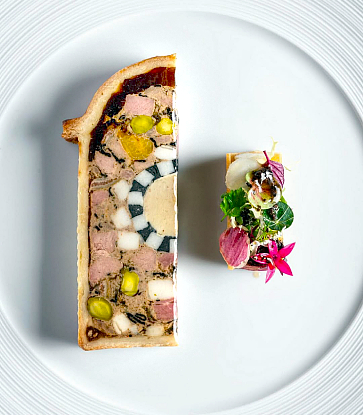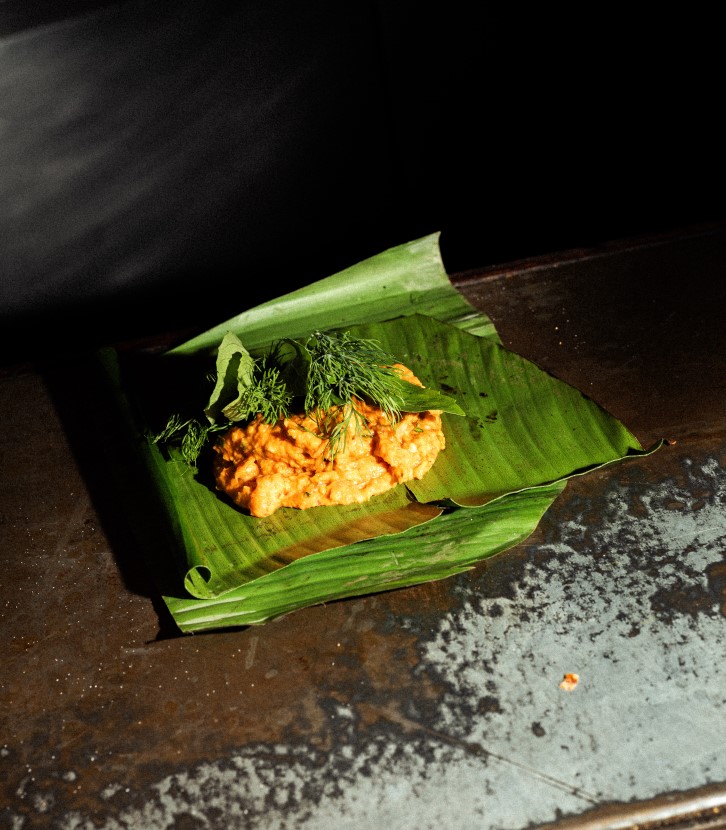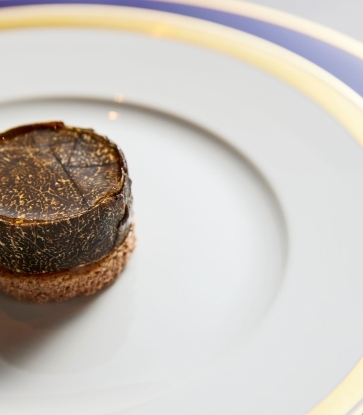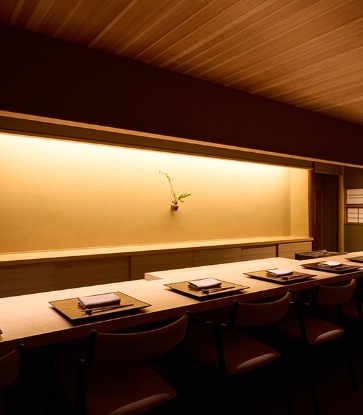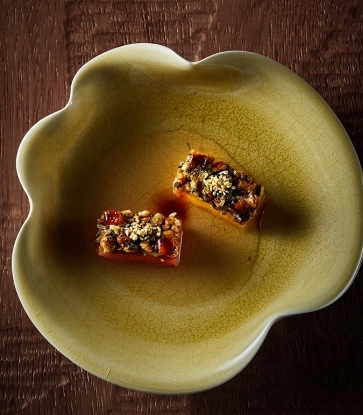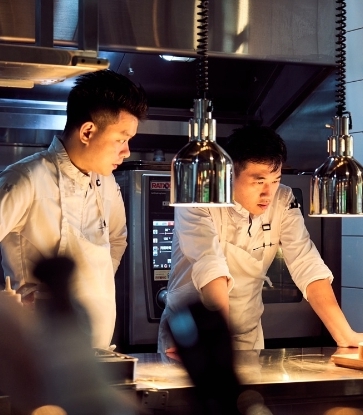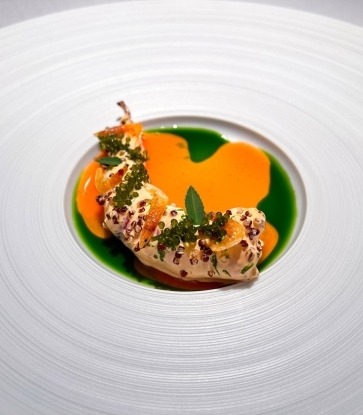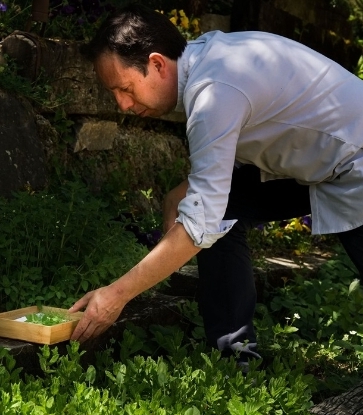As the first Bib Gourmand Restaurant in Taipei to serve Indian food, Joseph Elias Vaz from Joseph Bistro found his formula of success – a combination of experience, creativity, and a secret sauce recipe – in this city where he calls the second home.
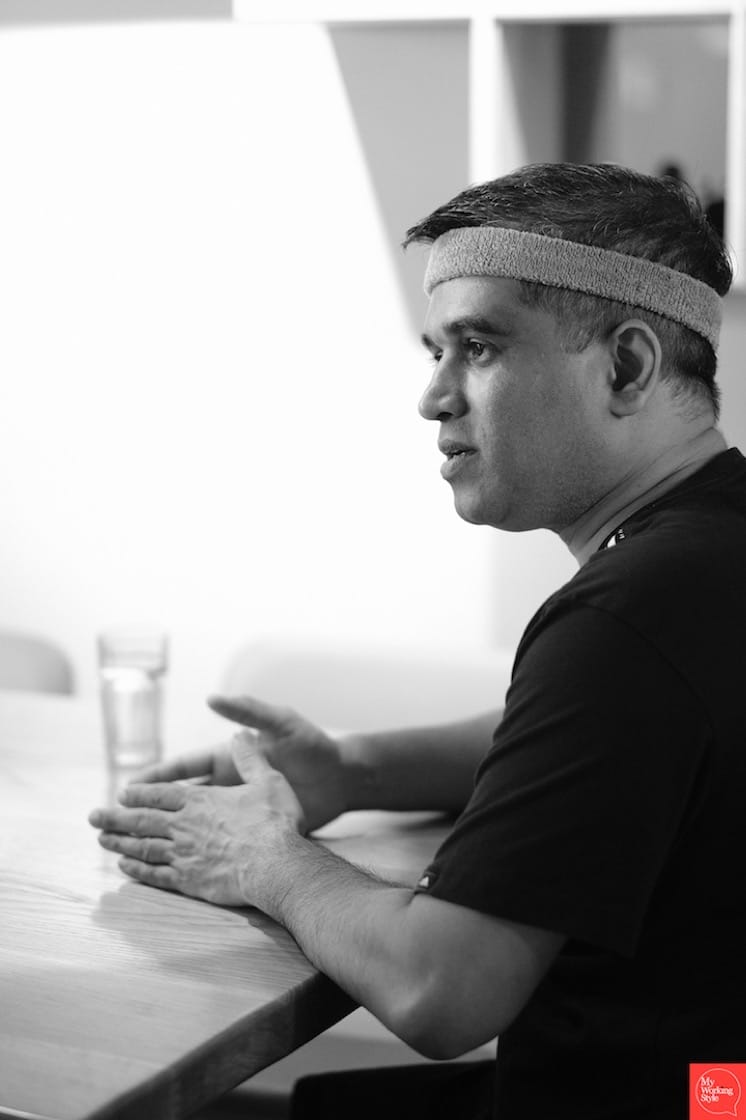
Linking Two Homes with Spices
“[The goal of] opening this shop is to relive the good time in front of the stove around food. More importantly, I want to work more freely, and have more time to spend with my family.”
Vaz has been in the business for over three decades. His culinary journey is extensive enough to form a tale of its own.
Hailing from Goa, India, he entered the kitchen at 18. Since then, he has made his marks across India, South Asia, Middle East, and Europe. He had cooked on a cruise liner traversing the Mediterranean Sea and prepared Western buffet, barbecue and delicate French cuisine. In 2001, he arrived in Taiwan and worked his way to the executive chef position at a top-notch hotel. At the same time, he built his own family here. Taiwan to him is nothing short of a home.
“It doesn’t have the capacity of a five-star hotel. How do I make the most with the costs I put in? Indian food is a good option to express my talent,” Vaz said.
While Northern Indian food isn’t so much a novelty in Taipei, there is certainly a vacuum for Vaz to shine with the Southern Indian cooking he’s been learning since childhood. The restaurant was run by only him and his wife in the beginning. Gradually, this 32-seat outlet found its audience. Through the rack in the middle of the restaurant filled with all kinds of spices, Vaz recreates the numerous delicacies in his memories, much to the delight of local epicures. India and Taiwan, two places dear to his heart, become connected with spiced flavours and the rich emotions in his mind.

“I inherited my knowledge of cooking from three women.” Even since he was a kid, Vaz has put his keen observation skills to use in the kitchen, taking notes from his mother and two neighbours from Mumbai in making food from Southern India, especially that from the regions of Mangalore, Malwan and his hometown of Goa.
In his eyes, Taipei is a city where all sorts of quality ingredients can be found, be it produced locally or from foreign countries. In addition, his background in western cuisine helps him think about presentation in an innovative way. All dishes at Joseph Bistro are easily recognisable due to Vaz’s signature style.

The idea of green masala burrata cheese salad comes from masala papad decorated with different spiced greens. On top of it, Vaz adds handmade Taiwanese burrata cheese, coriander and pine nut pesto and bright beetroot sauce. The trio of crunchy baby lettuce, soft burrata and broken papadam crisps gives diners much to enjoy. Those wonderful texture and flavour combinations make it an undisputed bestseller.

The tandoori is familiar to many Taiwanese diners there as well. Badami chicken tikka employs an exclusive masala recipe, blending a mix of spices with ginger, garlic, lemon oil, Chardonnay white wine vinegar and crushed almond to marinate deboned chicken thigh. The meat coming out from the tandoori is so tender and juicy that one could mistake it as cooked by sous vide.
Original flavour and depth are the trademarks of the curries at Joseph Bistro. The geographic location of Southern India dictates that seafood plays an instrumental role in local cooking. The use of spices follows the principles of balance and well-roundedness, leaving a fragrant aftertaste as the heat subsides.
In his Goan fish curry, Vaz highlights the grouper raised by sustainable methods in Taiwan alongside Indian fruit kokum and more than 10 other types of spices and vegetables. The dish is as rich as it’s refreshing and sweet. According to the dining customs of his hometown, the curry fish is served with rice. And it is one of the signature dishes at Vaz’s restaurant.

Being selected as a Bib Gourmand Restaurant, Vaz noted the business has been picking up even further. He is also holding himself to a higher standard. “Taiwanese people are born with sharp taste buds. They know about the complexity of flavours, and have the good ingredients required to creating great recipes.”
In the view of the chef, Indian cuisine is an upcoming trend in the gastronomic field. He is ready to present of art of Indian cooking to the world using touches of creativity.
On the day of the interview, Vaz was conceptualising the menu for the next season. There is a dish which resembles French lemon tart but is actually an appetiser with certain secret designs. The restaurant’s Chinese name hints to its multiple objectives: to think, believe, wish, want and miss. All these go back to what Vaz sees as running the bistro and his expectation to himself.
This article was written by Drew Zheng and translated by Vincent Leung. Click here to read the original version of this story.



